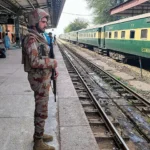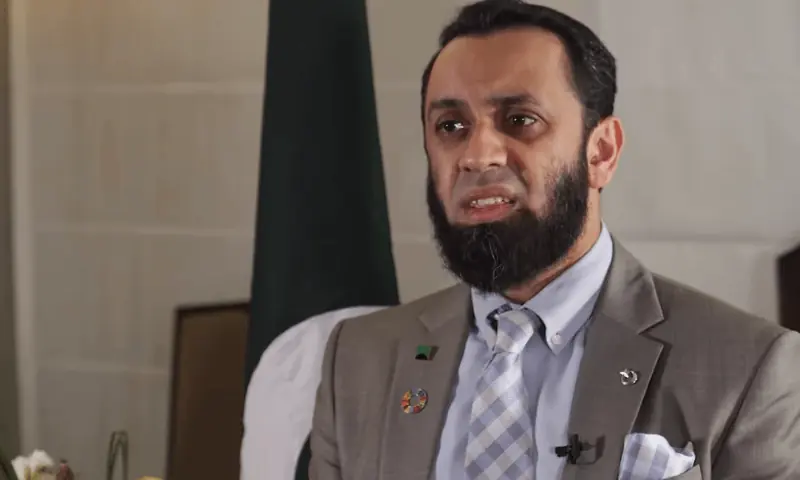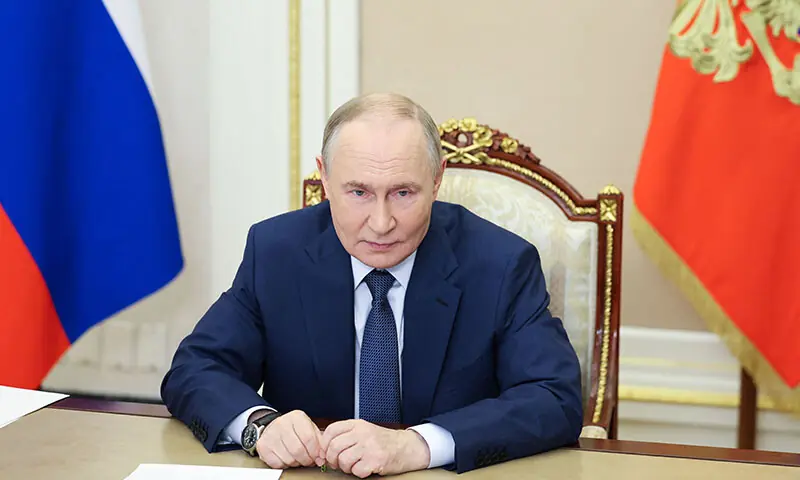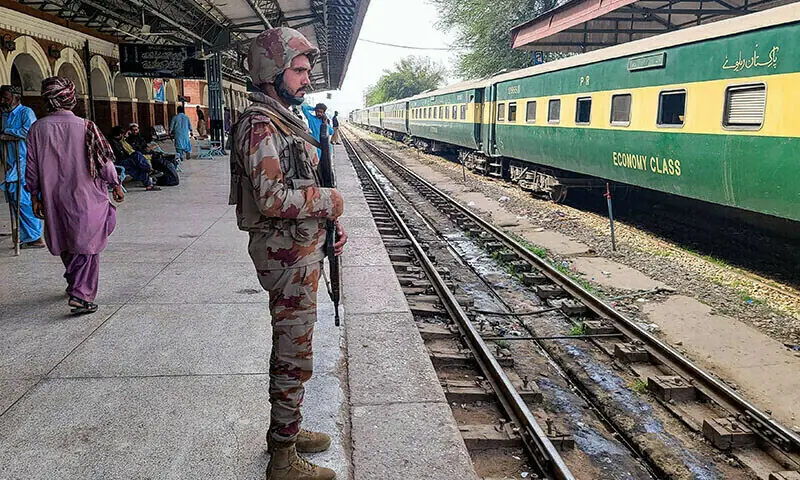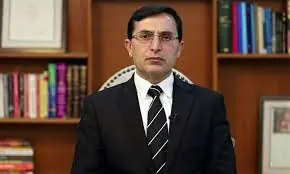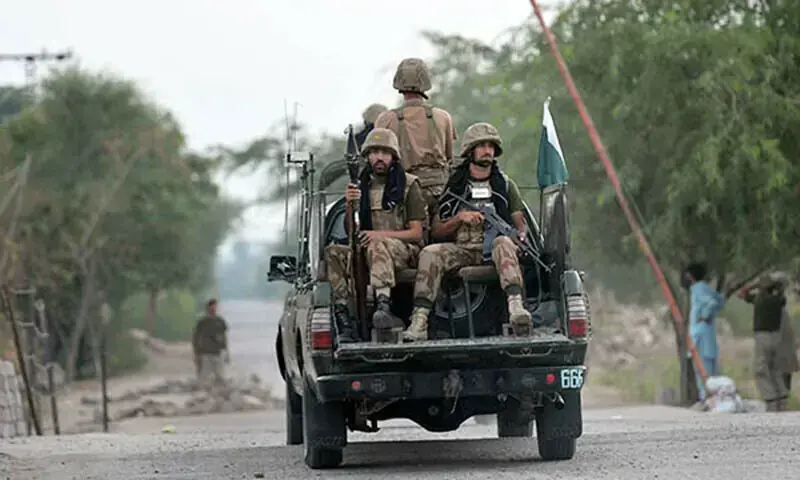Information Minister Attaullah Tarar said on Wednesday that the Afghan Taliban regime was to blame for the breakdown of talks between Islamabad and Kabul as the two countries engaged in a long round of dialogue to try to achieve a permanent ceasefire and a cessation of terrorist attacks originating from Afghan soil.
Pakistan witnessed a rapid deterioration in ties with Afghanistan, with both sides recently engaging in border skirmishes, counter-statements and accusations. Hostilities began earlier this month, when an attack was launched against Pakistan from Afghanistan on the night of October 11. The attack followed an allegation by the Taliban of Pakistani airstrikes against Afghanistan, an allegation that Islamabad has neither confirmed nor denied.
For its part, Islamabad has long demanded that the Afghan Taliban prevent terrorist groups from using its soil against Pakistan. The Taliban, however, deny the accusation of allowing terrorists to operate from Afghan soil.
Meanwhile, Pakistan continues to grapple with the issue of terrorism and has suffered multiple casualties among security forces in intelligence-based operations.
After the initial skirmish on October 11, many others occurred along the Pakistan-Afghanistan border. Meanwhile, the Islamabad attacks also targeted the camps of the Gul Bahadur group in Afghanistan. Ultimately, the two sides met for talks in Doha, resulting in a temporary ceasefire, as well as a commitment to meet again in Istanbul to work on mechanisms for lasting peace and stability between the two countries.
The second round of talks between the two parties, mediated by Turkiye and Qatar, began last week in the Turkish capital.
But today, Tarar announced that the latest round of talks between Islamabad and Kabul in Istanbul “failed to achieve any viable solution.”
Going deeper into the matter in an interview about Geographic news In the program ‘Aaj Shahzeb Khanzada Kay Sath’, the Information Minister said: “The Afghan Taliban regime is completely responsible for the breakdown of talks.
“When they have been given irrefutable evidence and their territory is being used against the sovereignty of Pakistan and for terrorist activities, and their people are involved with the TTP, then why do they resort to evasion?”
The information minister added that Pakistan was grateful to Qatar and Turkiye for facilitating the talks, but said the Afghan Taliban had failed to agree on a unified agenda to stop terrorist attacks and take action against the groups responsible.
“How much longer can we tolerate it?”
Asked if a ceasefire was still in place after the talks failed, Tarar said: “There is always hope in diplomatic efforts and it should always be there. There is always hope in global issues that some sources and diplomatic issues will move towards peace, but rest assured: if their soil is used and we give them proof of that, then Pakistan always has the right to respond in its self-defence.”
Asked whether Taliban negotiators had given a verbal agreement but not a written commitment to take action against the TTP, Tarar said hesitating to sign the written agreement amounted to “hypocrisy” and asked if it was not proof that “they want to support the terrorists and are doing so.”
He wondered what more proof the world needed that the Afghan Taliban were unwilling to stop terrorist activities and had malicious intentions.
“Their word cannot be trusted and their evil intentions have come out openly. Why were they present in India when they plotted to attack Pakistan’s border?”
He said only “time will tell” how things will progress from now on and that border trade will remain closed for the time being due to the stalemate. “A final decision will be made in the coming days about what the future of all of this will be.”
Advantage of conventional and proxy warfare
Reiterating Pakistan’s military and diplomatic performance in the conflict against India, the Information Minister said about Afghanistan: “What do you think? Can you harm Pakistan with such activities? Absolutely not!”
He said there was no rival between Pakistan and Afghanistan in terms of conventional warfare, adding that “we will defeat them in a proxy war.”[fare] also”.
When asked about the alleged threats made by the Taliban regime to attack Islamabad amid the current escalation, Tarar mocked what he said was a “propaganda war” and said that Pakistan was not only responding effectively to it but would give it an appropriate response.
He maintained that he said that the “unholy alliance” of Fitna al-Khawarij and Fitna al-Hindustan would be muted, referring to the Afghan Foreign Minister’s comments in India on occupied Kashmir during his visit to the country.
“Rest assured that if you attack across the border or use your soil, and we will present evidence of this before the world, it will be responded to appropriately. There will always be a response to attack Pakistan or harm it; enough is enough. How long will you take Pakistan for granted?”
He added that under the UN Charter and international law, Pakistan had the right to respond if there was a direct or indirect attack on its territory and could present evidence of this.
The minister questioned whether any other country would show such restraint and give the Afghan Taliban so much freedom in the face of such attacks.
Tarar explained that the Pakistani state had a clear stance that Afghan soil should not be used for attacks on the former’s territory, nor should the latter facilitate terrorists; The movement of terrorists from the neighboring country must also be stopped while respecting the integrity of international territorial borders and the interim Afghan authorities must take concrete measures against terrorist elements.
The minister said there was consensus in Pakistan that the above activities should be stopped. “Since the Afghan Taliban regime came to power, it has fully supported the Tehreek-i-Taliban Pakistan and members of the Tehreek-i-Taliban Afghanistan join its formations.”
“Whenever there is an attack or terrorist activity in Pakistan, we show the entire nation and the world on television that there are often Afghan citizens involved in them.”
He added that Pakistan had always wanted peace and played a constructive role, adding that the Taliban had also violated the Doha agreement before and let down all parties to the agreement.
“I think the Taliban regime does not have the support of the nation or the Afghan people. They want a war economy, but they cannot sustain it.”



